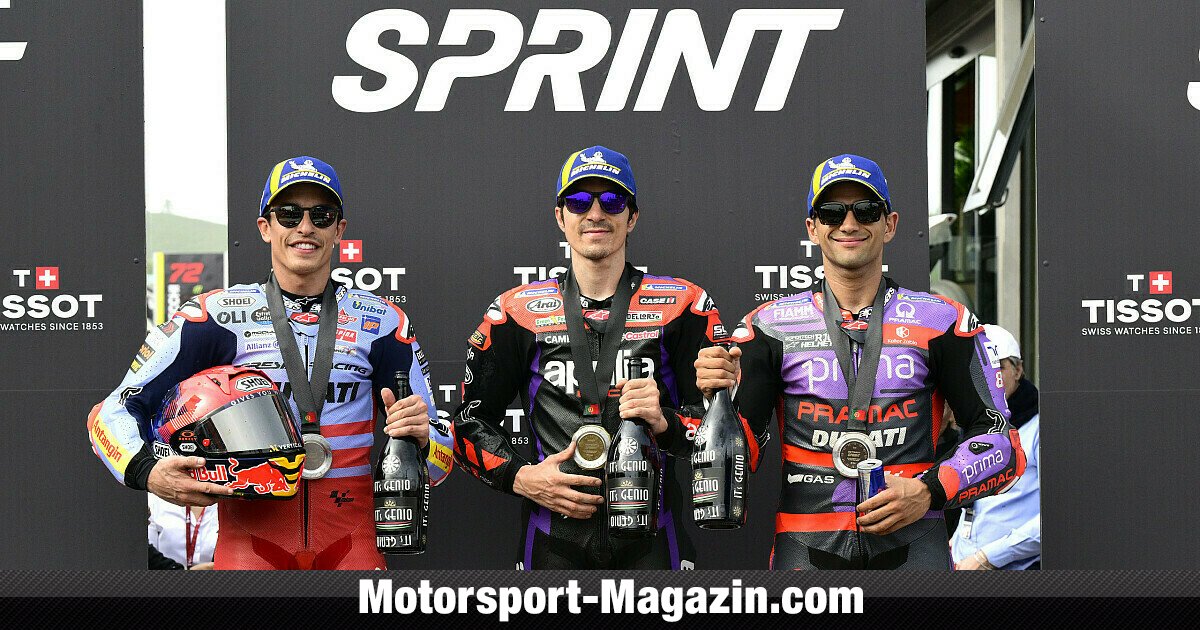Spanish is spoken in the MotoGP paddock. 10 of the 22 regular riders in the premier class will come from Spain in 2024. Fermin Aldeguer is the next man from the Iberian peninsula who has already secured his place from 2025. And in the junior categories, the picture is even clearer. While the Italians still represent competition in MotoGP, Moto2 and Moto3 are increasingly becoming Spanish championships with international participation. This was by no means always the case.
Spain in the Motorcycle World Championship before 2000: Angel Nieto and what else?
“MotoGP could become a Spanish championship, that’s amazing,” says Aprilia rider Aleix Espargaro, expressing his amazement at the development of motorcycle racing. It is a development that the 34-year-old has witnessed himself. He therefore knows only too well that this is by no means a given.

Motorcycling was very important in Spain in the 1970s and 1980s, at least thanks to motorcycle legend Angel Nieto. However, this did not initially mean success and many participants. In fact, Nieto, who died in 2017, often held the Spanish flag high alone. Only Ricardo Tormo could also claim victories. At the end of the 1980s, other top riders emerged with Sito Pons and Alex Criville. The latter only secured the first Spanish title in the premier class in 1999 – the fiftieth year of the world championship. Nieto, Tormo and Pons had only ever been successful in the smaller classes.
Criville’s triumph was not the starting signal for today’s dominance. Although there were other race winners, such as Sete Gibernau and Carlos Checa, the dominant rider was Valentino Rossi and he came from Italy. In the 2000s, however, there were signs of what was to come for the motorcycle world championship. Dani Pedrosa and Jorge Lorenzo, each with two 250cc titles, were the harbingers of the great Spanish motorcycle armada that would sweep across motorcycle racing from 2010 onwards.
Spanish World Cup titles before and after 2010 in comparison
| Period | MotoGP/500cc | Moto2/250cc | Moto3/125cc |
|---|---|---|---|
| Before 2010 | 1 | 2 | 10 |
| Since 2010 | 10 | 11 | 13 |
Since then, the Spaniards have won many times more titles than in the previous six decades of the motorcycle world championship combined. Only in the smallest class are these statistics balanced, which is of course due to Angel Nieto’s successes. Since 2010, eight titles have been won by Marc Marquez, six of them in MotoGP alone. And yet the track record would be extraordinary even without the man with the number 93. But why is that so, and does it seem to develop even more strongly in the future?
Aleix Espargaro: Laying the foundation for success in the 2000s
“It’s the fruits of good work: in the schools, in the infrastructure, because of the climate. There are many things that were done right in the early 2000s, not just now. These fruits are now coming to fruition,” Espargaro analyzes. “I guess it’s probably also about the weather. We have nice weather and can therefore train more,” says his friend Jorge Martin.
But there is good weather elsewhere too. The Spanish are so strong in the juniors that riders from other motorcycle nations also go there. The best example is the current MotoGP world champion. “Why are there so many Spaniards in MotoGP? Because they simply do a good job with the juniors. They have a very good school there. I did that too when I was young. I went to Spain to improve. The level of competition was higher. The Spanish championship was the highest before moving on to the world championship,” explains Francesco Bagnaia.
Broad competition in Spain produces quality
“It’s about the number of good tracks in the country, the number of people who ride. It’s also the same bike as in the World Championship [das Moto3-Bike, Anm. d. Red.]. So there are many reasons why Spain is doing such a good job with young drivers,” the Italian continues. Quantity brings quality at the top. Jorge Martin knows this too: “Everyone comes to Spain and that then creates more Spaniards in the [Welt-]Championships.”

This has a particularly striking effect on Moto3. Since 2017, only Lorenzo Dalla Porta (2019) has been able to interrupt the series of Spanish world champions. The next one could follow in 2024 with the Colombian David Alonso. But Alonso was also born and raised in Spain, and he only rides under his mother’s nationality. “We certainly have good talent,” says Jorge Martin with a smile. And the huge source of fast Spaniards on two wheels is unlikely to dry up in the future, quite the opposite. The question is more: which drivers from other nations can hold their own?
